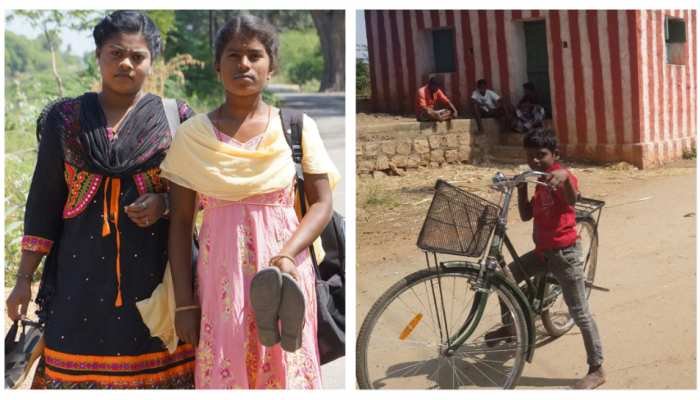Shoes and slippers banned village: In the remote village of Andaman, Tamil Nadu, a fascinating and unique tradition stands out—shoes and slippers are entirely banned, and the residents walk barefoot everywhere. Situated about 450 kilometers from Chennai, this small village, home to around 130 families, embraces this practice as a deep-seated part of their cultural and spiritual identity. This intriguing custom not only highlights the village’s strong adherence to its traditions but also offers a rare glimpse into how deeply culture and religion can influence daily life in a close-knit community.
Cultural Significance:
The barefoot tradition in Andaman is much more than an unusual local custom; it’s a reflection of the villagers’ profound religious beliefs. They revere a deity named Muthyalamma, whom they believe offers divine protection to their village. The practice of walking barefoot is a form of honoring the goddess, especially during the annual festival held in March and April. This festival is a significant cultural event that brings the community together, reinforcing their spiritual connection and traditional values.
Practical Aspects:
Adapting to the local climate, villagers often wear slippers during the scorching summer months to protect their feet from the hot ground, but otherwise, they prefer to walk barefoot. This practice extends to children attending school and adults going about their daily routines. The tradition not only respects cultural norms but also reflects a practical adaptation to the environment and lifestyle of the area.
Social Dynamics:
The village’s unique rule extends to visitors as well, who are informed about the no-shoes policy upon arrival. This helps in maintaining the village’s cultural integrity and ensures that newcomers respect and adhere to local customs. The practice fosters a strong sense of community and belonging among residents, reinforcing their shared identity.
Spiritual Beliefs:
There is also a prevailing belief that violating this tradition could lead to a mysterious fever spreading through the village. This supernatural element adds a layer of seriousness to the practice, encouraging compliance among residents and further embedding the tradition into daily life.
Modern Context:
In an era where modern influences are rapidly changing lifestyles, Andaman’s tradition of walking barefoot remains a compelling example of cultural preservation. It underscores the importance of maintaining traditional practices amidst contemporary pressures, offering a window into how deeply cultural and religious beliefs can shape community life.
Andaman’s practice of banning shoes and slippers not only preserves a unique aspect of cultural heritage but also illustrates the enduring influence of tradition on everyday life.













